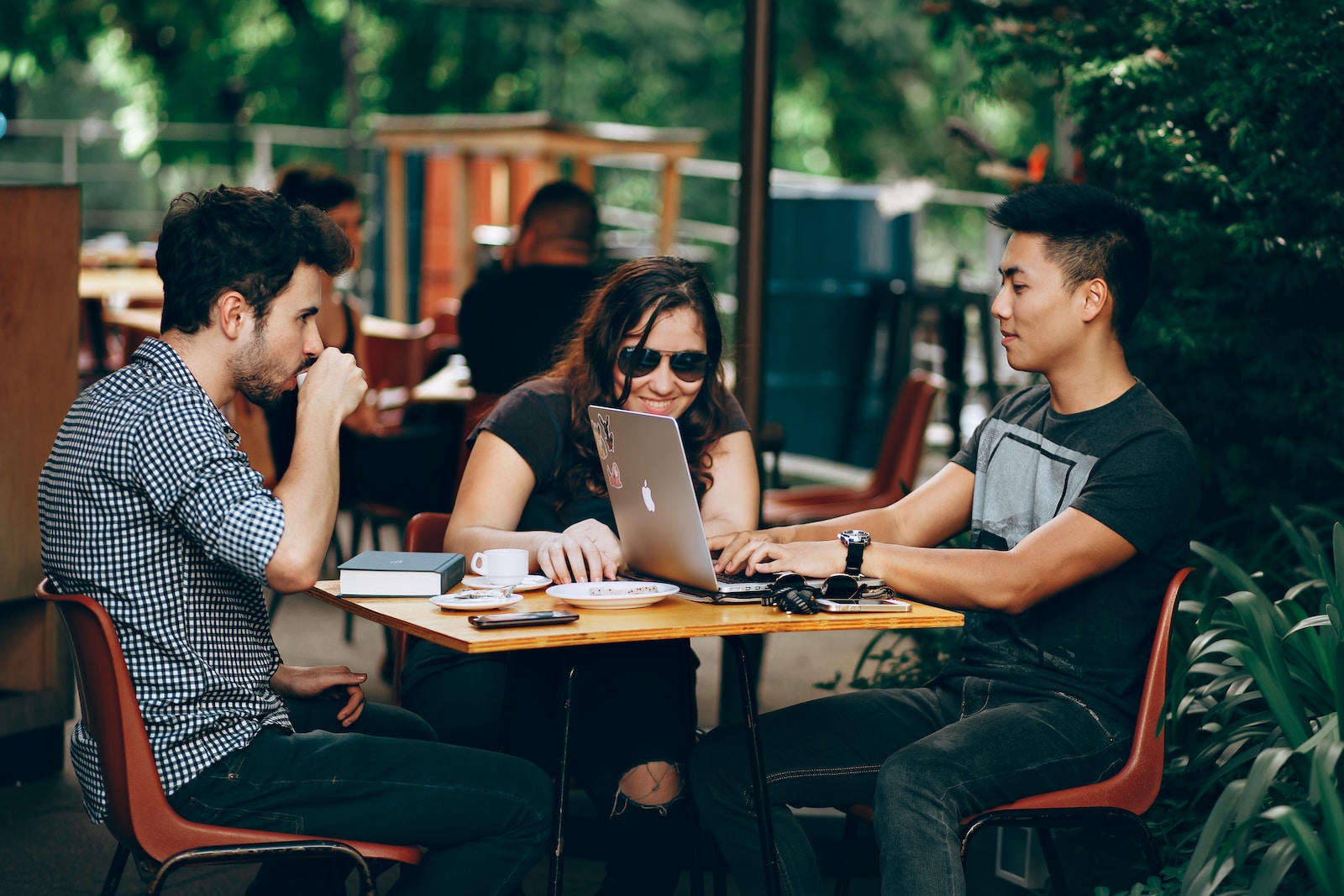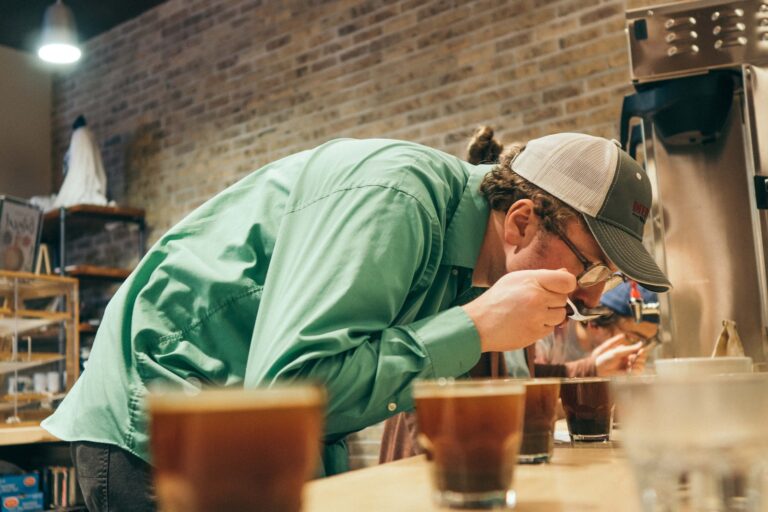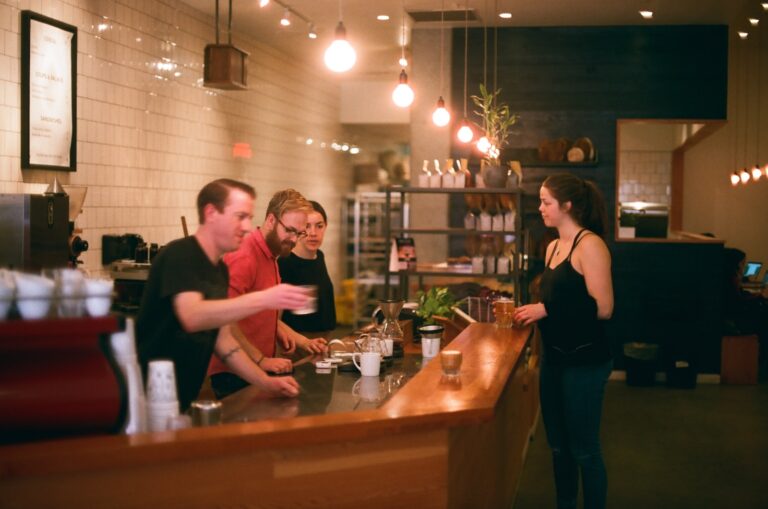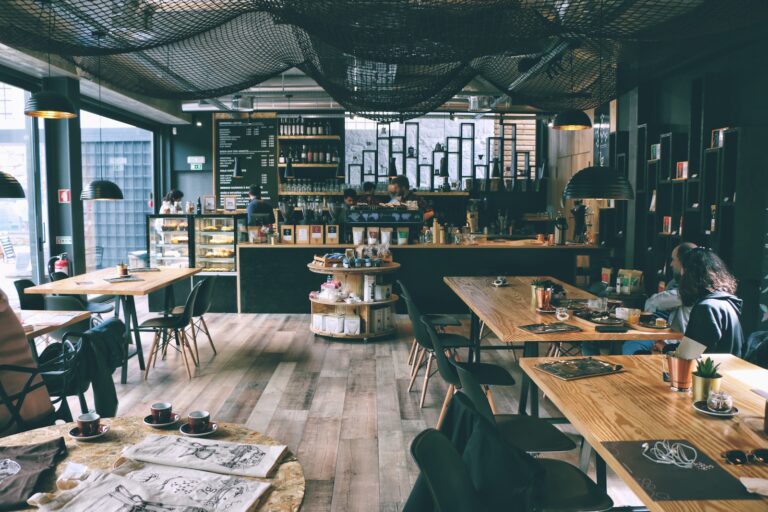Do you ever wonder how a simple cup of coffee can bring people from different cultures together, bridging gaps and sparking meaningful conversations? Coffee has become more than just a beverage; it is a cultural icon that unites communities worldwide. In this blog post, we dive deep into the fascinating world of coffee and its impact on culture. Join us as we explore the rich history, diverse rituals, and captivating stories behind your favorite caffeine fix.
Get ready for an enlightening journey filled with vibrant flavors, heartwarming connections, and thought-provoking discussions – because when it comes to coffee and conversation, there’s so much more brewing beneath the surface!
Introduction to the Cultural Significance of Coffee
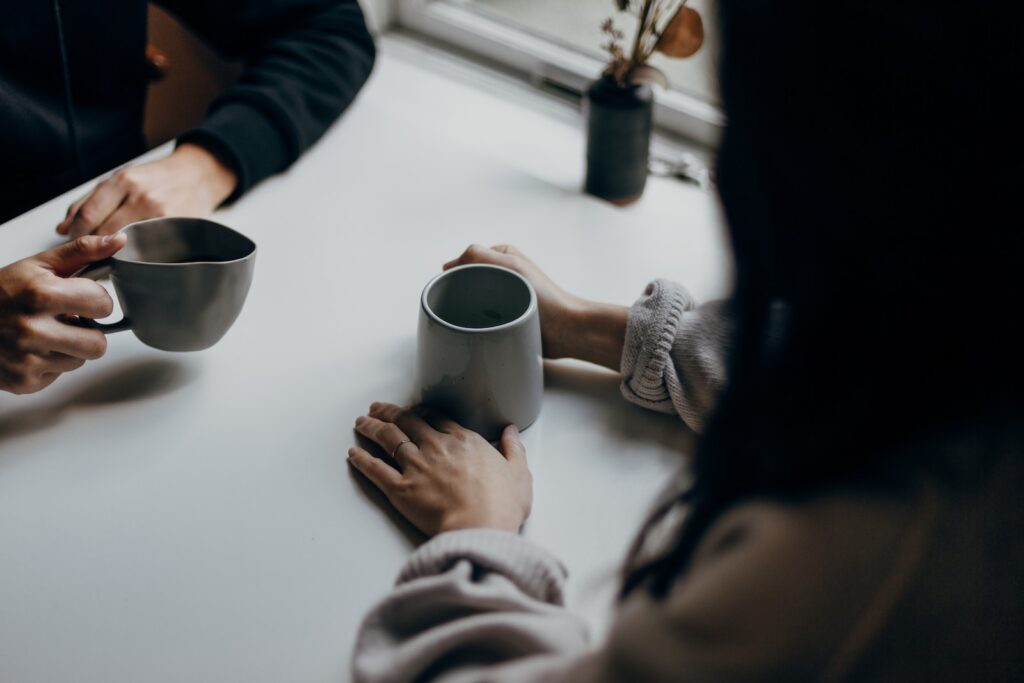
Coffee is more than just a popular beverage; it is deeply ingrained in various cultures around the world. For centuries, coffee has played an important role in bringing people together, facilitating conversations, and building communities. In this section, we will explore the cultural significance of coffee and how it has evolved over time.
History of Coffee Across Different Cultures
Coffee is more than just a beverage – it is a cultural phenomenon that has evolved and spread across the world. From its discovery in Ethiopia to its status as a staple drink in many cultures, coffee has played an important role in shaping human history.
The history of coffee can be traced back to the 9th century, where legend has it that a goat herder named Kaldi noticed his goats becoming unusually energetic after consuming berries from a certain plant. Curiosity led him to try these berries himself, and soon he experienced the same invigorating effects. This plant turned out to be the coffee plant and thus began its journey through different cultures.
Customs and Rituals Surrounding Coffee Consumption
In many cultures around the world, coffee is not just a mere beverage, but also an important part of daily life and social customs. From the way it is prepared to how it is served and consumed, there are various customs and rituals associated with coffee consumption that reflect the cultural values and traditions of different communities.
1] Coffee Preparation:The way coffee beans are processed and brewed can greatly differ from one culture to another. In Ethiopia, for example, the traditional method of preparing coffee involves roasting green coffee beans over an open flame before being ground and brewed in a clay pot called ‘jebena’. This ritualistic process takes place in a special area designated for coffee making within the household, often accompanied by prayers or incense burning.
2] Serving Style:
In some cultures like Turkey or Greece, coffee is served in small porcelain cups without handles called ‘fincan’ or ‘fildzan’. The host usually serves their guests multiple rounds of this strong black coffee which is sweetened according to personal preference. In contrast, in countries like Italy or France where espresso-based drinks are popular, single servings are common and often enjoyed quickly at a café bar while standing.
3] Sharing Rituals:
The act of sharing a cup of coffee has long been associated with building relationships and fostering community bonds. In Middle Eastern countries such as Jordan or Lebanon, ‘coffee etiquette’ dictates that you should never refuse an offer for a cup of Arab-style black coffee when visiting someone’s home.
Social Aspects of Coffee Drinking in Various Cultures
Coffee is a staple beverage in many cultures around the world, and its consumption goes beyond just providing a caffeine boost. In fact, coffee drinking has been deeply ingrained in social and cultural traditions for centuries. From elaborate rituals to casual gatherings, the act of sharing a cup of coffee has become an important aspect of daily life for many people.
One of the most fascinating aspects of coffee drinking is how it varies from culture to culture. Each country and community has its own unique customs and practices when it comes to enjoying this popular drink. Let’s take a closer look at the social aspects of coffee drinking in various cultures.
Europe:
In Europe, coffee is often seen as a leisurely activity rather than just fuel for productivity. It is common for people to start their day with a warm cup of coffee while catching up on news or engaging in discussion with friends and family. In countries like Italy, France, and Spain, cafes are a central part of social life where people gather to chat, play games, or simply people-watch over espresso shots or cappuccinos.
Middle East:
Coffee holds great cultural significance in Middle Eastern countries such as Turkey, Egypt, and Saudi Arabia. Here, preparing and serving Turkish-style coffee is an art form passed down through generations. It involves roasting fresh beans over open flame before grinding them finely and brewing them slowly in water with sugar added according to personal preference. Guests are usually welcomed with a cup of strong black coffee along with dates or other sweet treats as a gesture of hospitality.
Asia:
In many Asian countries like Japan and China, tea is the traditional drink of choice. However, coffee has become increasingly popular in recent years, especially among the younger generation. In Japan, for example, you can find trendy cafes that specialize in pour-over coffee or latte art. While tea ceremonies are still held in high regard for formal occasions or special guests, coffee has found its place in more casual settings and is often seen as a symbol of modernity and cosmopolitanism.
Latin America:
Latin American countries are some of the largest producers and consumers of coffee in the world, with Brazil being the top producer. Coffee culture here is deeply rooted in daily routines and social interactions. In countries like Colombia, Mexico, and Argentina, people tend to enjoy a strong cup of coffee with breakfast or after meals as a way to relax and connect with others. In many rural areas, it is also common for neighbors to gather at a central spot and share stories over freshly brewed coffee.
Impact of Coffee on Economic and Political Factors
The impact of coffee on economic and political factors cannot be overlooked. For many countries around the world, coffee is not only a beloved beverage but also an essential part of their economy. The global coffee industry is worth over $200 billion, with millions of people employed in its production, distribution, and sale.
Economically, the cultivation and exportation of coffee significantly contribute to the growth and development of several countries. In fact, it is one of the most valuable traded commodities in the world. Coffee-producing countries such as Brazil, Colombia, and Ethiopia rely heavily on this crop for their foreign exchange earnings. The rise or fall in international coffee prices can have a significant impact on these economies.
The demand for high-quality coffee has led to an increase in specialty coffee shops and cafes worldwide. This has created job opportunities for baristas, roasters, cafe owners, and other related roles. The growth of this industry has also attracted investments from multinational corporations looking to capitalize on the popularity of coffee consumption.
Moreover, small-scale farmers in developing countries who grow coffee often face challenges such as volatile market prices and limited access to credit. As a result, many initiatives have been launched by governments and organizations to support these farmers through fair trade practices and sustainable sourcing policies.
The Role of Cafes in Cultural Exchange and Communication
Cafes have long been a place where individuals can come together to relax, socialize, and enjoy a cup of coffee. However, beyond providing delicious beverages and cozy atmospheres, cafes also play a significant role in facilitating cultural exchange and communication.
One of the main ways that cafes contribute to this is by bringing people from different cultures together. In today’s globalized world, it is not uncommon to see people from various backgrounds and nationalities sitting side by side in a cafe. This mix of diverse individuals creates an ideal environment for cultural exchange as they share their unique perspectives and experiences with one another.
Furthermore, cafes often serve as a meeting point for travelers who are eager to learn about the local culture. Tourists may stop at a cafe for a quick break from sightseeing but end up engaging in meaningful conversations with locals about the country’s customs, traditions, and way of life. Cafes provide an informal setting where these interactions can take place naturally without any pressure or expectation.
Apart from fostering cultural exchange between individuals, cafes also act as platforms for artists and performers to showcase their talents and share their culture with others. Many cafes host events such as open mic nights or live music performances that feature artists from different countries.
By attending these events or even just stumbling upon them while sipping on your latte, you can gain insight into various cultures through art forms like music, poetry readings, or dance performances.
Conversations Sparked by a Cup of Coffee: Personal Experiences and Stories
There’s something magical about the combination of coffee and conversation. It’s a timeless pairing that has sparked countless meaningful discussions, heartfelt connections, and unforgettable moments. Whether it’s catching up with an old friend, meeting a new acquaintance, or simply enjoying a solo break from the chaos of everyday life, there’s no denying that a cup of coffee has the power to bring people together and ignite intriguing conversations.
Personal experiences and stories are at the heart of these interactions. As we sit across from each other with our mugs in hand, sipping on warm coffee and exchanging thoughts, we open up and share parts of ourselves that we may not have otherwise. This is where the real magic happens – when two or more individuals connect on a deeper level through their personal experiences.
One can argue that this is because coffee creates a comfortable atmosphere. It’s often enjoyed in cozy cafes, surrounded by friendly chatter and inviting aromas. The warmth of the drink radiates throughout our bodies, making us feel relaxed and at ease. This allows for genuine conversations to flow freely without any barriers or pretenses.
The beauty of these conversations is that they can range from lighthearted banter to deep reflections on life experiences. A simple question like “How was your week?” can lead to hours-long discussions about work stressors, family dynamics, personal achievements, or even fears and insecurities. With every sip of coffee comes another layer peeled away until we’ve bared our souls to one another.
Conclusion
In today’s fast-paced world, where technology has taken over most forms of communication, taking the time to have a cup of coffee and engage in genuine conversation with others is becoming rarer. However, after exploring the cultural significance and benefits of this simple act, it is clear that we should make more effort to incorporate it into our lives.
Whether for catching up with loved ones or building new connections, sharing a cup of coffee can bring people closer together and provide valuable insights into different cultures. So let’s put down our phones and savor the experience of coffee and conversation as a way to connect with others on a deeper level.

